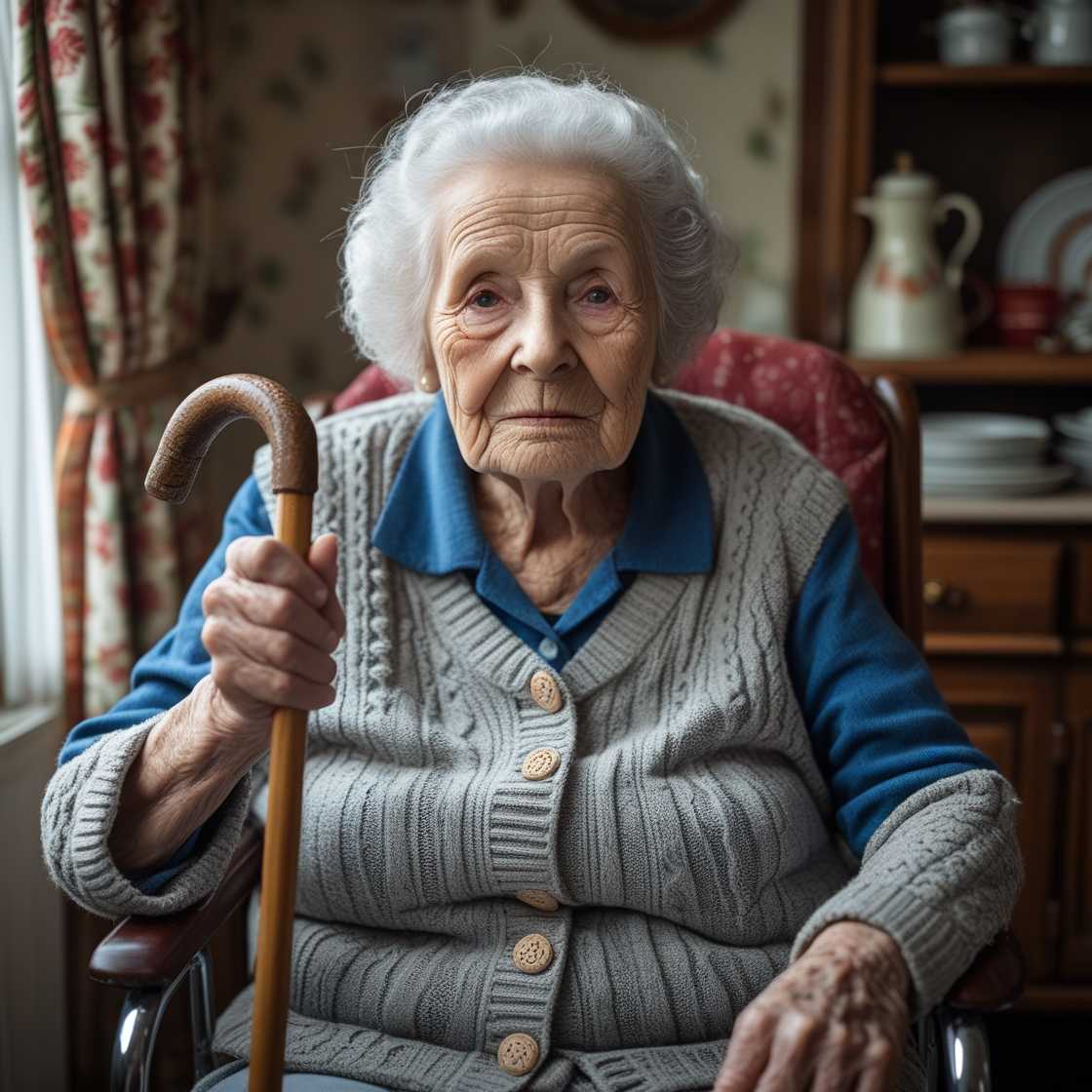Granny Martha was in her eighty-seventh year and hadn’t remembered what it felt like to be young in decades—but that never stopped her from offering firm advice (or the occasional prod with her walking stick) to every granddaughter and great-granddaughter within earshot.
“End up an old spinster, and you’ll wish you’d listened to me—when it’s too late,” she’d declare, eyes narrowing with prophetic certainty.
But lately, Granny Martha had gone quiet.
She no longer hauled herself out of bed at sunrise. No more clattering pans in the kitchen at half-past six to wake the “lazy good-for-nothings.” No more shuffle through the hallway with her slippers dragging and her mouth full of judgment.
The house noticed.
“Gran,” asked little Emily, all five years old and bursting with curiosity, “why don’t you yell at us anymore?”
Granny Martha sighed, her voice softer than it had been in decades. “Because I’m getting ready to die, love. It’s time.”
Whether that sigh carried sadness for life’s end or relief from the stew no one seemed to cook properly anymore, it was hard to tell.
Emily, solemn-faced and duty-bound, raced back to the kitchen where the grown-ups were murmuring in hushed tones.
“Gran’s hedgehog died!” she reported.
“Her what?” barked William—Granny Martha’s eldest son and the self-appointed head of the household—his great, stormy eyebrows arching like awnings in a windstorm.
“Hedgehog,” Emily repeated with a shrug. “An old one, I think.”
The adults blinked. Granny had never mentioned a hedgehog. Still, the report was unsettling.
The next day, the family summoned a doctor—a calm, polite man with a leather bag and the expression of someone who had seen one too many dramatic families.
“Your grandmother isn’t herself,” he declared after a brief check.
“Thank you, Doctor,” William clapped his thighs in mock applause. “That’s precisely why we called you.”
The doctor, unfazed, turned to William’s wife.
“She’s old,” he said plainly. “But I see no cause for alarm. What’s different?”
“She doesn’t tell me how to cook anymore,” she murmured, eyes distant. “Whole life, I couldn’t so much as boil a potato without her behind me, tutting. Now—nothing.”
Everyone went quiet.
It was decided: something had shifted. Something serious.
That night, worn out by worry and speculation, they all collapsed into bed.
At some ghostly hour, William awoke to the familiar whisper of slippers brushing across wood. But the sound wasn’t brisk and commanding like before. It was hesitant, tired.
“Mum?” he whispered into the hallway’s dim light.
“What?” came a voice—dry, annoyed, familiar.
“What are you doing up?”
“Thought I’d pop over to see Albert Jenkins while you lot were sleeping,” she snapped.
Pause.
“Where else would I be going, you daft boy? The loo.”
Relieved and bewildered, William flipped on the kitchen light, started the kettle, and slumped at the table, rubbing his face.
Behind him, she shuffled in.
“Starving?” she asked, leaning in the doorway.
“No. Just… waiting for you,” he said. “What was all that about, Mum?”
She eased into the chair opposite him, hands folded on the table, her old eyes twinkling with something between exhaustion and mischief.
“You lot needed a fright,” she said simply.
